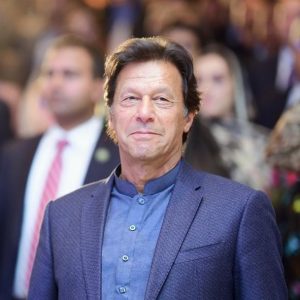The party of Pakistan’s former Prime Minister Imran Khan on Wednesday dissolved a provincial assembly in the country’s northwest, where it held majority seats. Its rival, the ruling Pakistan Muslim League party, criticized the move, saying it meant to deepen the political crisis and force early parliamentary elections.
As opposition leader, Khan has been campaigning for early elections and has claimed — without providing evidence — that his ouster last April in a no-confidence vote in Parliament was illegal.
He has accused his successor, Prime Minister Shehbaz Sharif, the Pakistani military, and the United States of orchestrating his ouster. Sharif, army officials, and Washington have all dismissed the allegations.
Khan is banking on his popularity and wide grassroot support to force early elections. Since his ouster, he has staged rallies across the country, calling for the vote. But Sharif and his Pakistan Muslim League have repeatedly dismissed the demands, saying elections will be held as scheduled — later in 2023 — when the current parliament completes its five-year term.
On Wednesday, Ghulam Ali, provincial governor in northwestern Khyber Pakhtunkhwa province, dissolved the local assembly there, just days after another Khan ally, provincial lawmaker Pervez Elahi, dissolved the assembly in Punjab, the country’s most populous province, in eastern Pakistan.
Khan’s Pakistan Tehreek-e-Insaf (PTI) party was in power in both provinces. The dissolution of the chambers will lead to snap elections in both Khyber Pakhtunkhwa and Punjab — and may lead to the party being reelected in both provinces — but will unlikely effect any change on the national level.
Sharif’s government maintains that the tactics of the 70-year-old Khan are damaging the country’s economy. Pakistan has struggled with the aftermath of unprecedented floods that devastated the country last summer and which experts say were exacerbated by climate change. Cash-strapped Pakistan is also facing a serious financial crisis and unabating militant violence.
Khan, a former cricket star turned Islamist politician, was wounded in a gun attack while leading a rally toward the capital, Islamabad, last November. One of Khan’s supporters was killed and several others were wounded in the shooting.
Khan accused Sharif’s government of being behind the attack; authorities have denied the allegation. The gunman was arrested on the scene.
Since the assassination attempt, Khan has been leading his political campaign from his hometown of Lahore, the capital of Punjab.
Also on Wednesday, suspected militants ambushed a security convoy in a remote area in southwestern Pakistan, near the Iranian border, killing four soldiers, the military said. The army statement said the attackers used Iran’s territory to launch the attack and that Islamabad has asked Tehran to arrest the assailants.

































